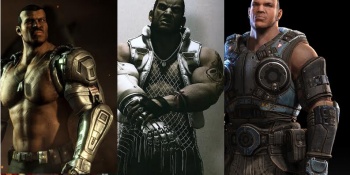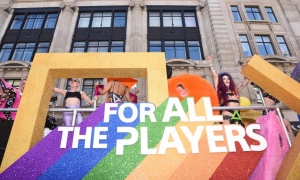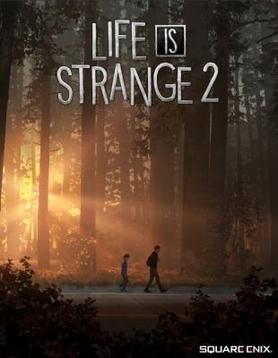Racism in Video Games
Racism in video games is a topic that has received significant academic and journalistic attention over the years. In many ways, playing video games is like a mirror of the society we live in and provides a way to learn about the world[1]. Games offer many opportunities for players to explore social identities and other worldviews. The landscape of video games and who plays them has changed drastically as well. However, video games still also have the power to sustain racial stereotypes and ruin the experience for other players. In addition, racism also has the power to institutionally handicap minorities seeking jobs and careers in the industry.
Contents
Demographics: "Who plays, who pays, and who gets hurt?"
Several studies indicate that African Americans, Latinx, and Asians are more active in the gaming community than white people. 83% of African American teens report playing video games compared to 71% of white teens. [2] A study also found that youth of color between 8 and 18 play games roughly 30 minutes more per day than white youth of the same age. [3] Latinx youth have been found to spend more time than black or white youth playing console games, and the same study found that black children start playing at an earlier age, and they’re twice as likely to have a video-game console in their bedroom.
In regards to income, higher-income teens are more likely than low-income ones to play games with friends they know in person. As of 2015, 94% of teens whose families earn more than $50,000 a year play online games with in-person friends. Teens from middle and upper-income homes that earn more than $50,000 a year are also more likely to have a voice connection to other players. This changes in regard to racial demographics. While black teens are more likely to play video games than white or Latinx teens, white teens(62%) are more likely than black teens(40%) to have a voice connection when they play networked games with others.
When it comes to online behavior, a 2019 study [4] found that two-thirds of gamers have experienced serious harassment(much of it including racists threats) while playing online. 53% were reported to have been targeted based on their race, religion, ability, gender, gender identity, sexual orientation, or ethnicity. It was also discovered that 29% of online game players have been “doxed”(personal or private information being publicly exposed against one's wishes) in an online game. The survey also found that online game players were exposed to extremist ideologies and propaganda. 23% of respondents reported being exposed to discussions about white supremacy through online games while 8% reported being exposed to sympathetic statements related to ISIS/Islamic State. 9% of players also reported being exposed to discussions about Holocaust denial, and 13% of players were exposed to misinformation about the September 11 terror attacks. Although many game publishers and console makers are aware of these issues and trying to confront them, modern technology and gaming practices, freedom of speech concerns, and a lack of chargeable offenses make removing toxic behavior extremely difficult[5].
Stereotype Reinforcement
A common issue that continues to be an ongoing theme in the gaming industry is the reinforcement of harmful, racial stereotypes. In 2015, Pew Research Center found that 35% of blacks, 36% of Hispanics, and 24% of whites surveyed believe that minorities are portrayed poorly in video games. A 2018 study[6] found that African American avatars in video games were likely to be ‘physically imposing, angry and menacing’. In addition, white people playing as a black avatar were more likely to display increased aggression towards other players. In games such as Red Dead Redemption 2 [7], an online action-adventure game developed and published by Rockstar Games, there multiple accounts of players who claimed to be harassed by others reenacting slavery-era behavior by targeting, rounding up and killing black characters [8] in the multiplayer version of the game. Another example can be found in the 2009 game Resident Evil 5 [9], in which the developers of the game came under scrutiny due to the portrayal of African people in the game [10].
Lack of Diversity in Game-Makers
Another issue involves the fact that the hiring processes of video game employees do not reflect the vast diversity in races and genders. The latest Independent Game Developers Association(IGDA) Satisfaction Survey showed that people who identify as white, Caucasian, or European make up 69% of the video game industry. African Americans, Latinx, Pacific Islanders, Indigenous people, and Arabian and West Asian people make up just 14% of game-industry employees combined. This is all despite there being around 6 times more of those demographic of players. In the very first comprehensive survey of video game characters[11], it was found that more than 80% were white and male, only 10% of playable characters were female, and less than 3% were Latinx. Although the number of black game characters was relatively high(32.64%), they were poorly portrayed [12].
Ethical Implications
Although a majority of gamers today are minorities, the majority of the games are still being made for a white male audience. Although there has been a shift in representation in the industry has there has been some improvement over the years, the reality is that people of color are still not being seen in the gaming world enough.[13] On top of that, the majority of people making these games are people who identify as white/caucasian. This means that the majority of gamers are not seeing themselves represented in the field and in the games themselves. In regard to reducing online gaming toxicity, Carlos Figueiredo, one of the founders of Fair Play Alliance, states that the issue is that it doesn’t stem from the games themselves but rather the culture of communicating over the Internet, where people are connected with others from different backgrounds, cultures, languages and interests. What’s accepted as common in one part of the world may be seen as unwelcome or negative in another.[14]
Porposed Solutions
In order to combat these trends, many individuals within the industry recommend having more diverse teams. Having these teams would increase ROI [15] and make relating to customers easier. It will also augment the idea that diverse teams developing characters looked more like the people playing will decrease stereotypes and allow for more representation.
Game publishers have repeatedly tried to address the problem of toxicity. Riot Games announced it would be studying and trying to reduce toxicity more than five years ago and began adding in-game tips to encourage positive interactions. That brought down verbal abuse by about 6 percent and offensive language by 11 percent, according to reporting by Scientific American, based on figures provided by Riot.[16] Ubisoft began issuing instant bans for Rainbow Six Siege players in July 2018 for what the company regarded as offensive or abusive speech.
Other proposed solution is to have more games that introduce new perspectives and have political themes. An example is Life is Strange 2[17] in which you take control of the character Sean Diaz, a Mexican-American teenager. The game forces you to consider the circumstances of its characters and connect to the fictional people within it. The game places you in a situation where you feel like you’re the guardian of two young boys who are making their way through painful circumstances. The political tones bring a nuance to the world and a reflection of the real lives of others in modern America[18].
References
- ↑ [1]"Video game play may provide learning, health, social benefits, review finds"
- ↑ [2]"Chapter 3: Video Games Are Key Elements in Friendships for Many Boys"
- ↑ [3]"Generation M2: Media in the Lives of 8- to 18-Year-Olds - Report "
- ↑ [4]"ADL Survey Uncovers Widespread Racism and Harassment in Online Gaming World"
- ↑ [5]"Right-Wing Hate Groups Are Recruiting Video Gamers"
- ↑ [6]"Stereotypes and Racism in Video Games"
- ↑ [7]"Red Dead Redemption 2"
- ↑ [8]"Playing Red Dead Online as a black character means enduring racist garbage."
- ↑ [9]"Resident Evil 5"
- ↑ [10]"The meaning of a game: Stereotypes, video game commentary and color-blind racism"
- ↑ [11]"Virtual Census"
- ↑ [12]"Black Characters in Video Games"
- ↑ https://www.bbc.com/news/technology-42357678 "Video games: How big is industry's racial diversity problem?"
- ↑ https://www.washingtonpost.com/technology/2019/02/26/racism-misogyny-death-threats-why-cant-booming-video-game-industry-curb-toxicity/"Racism, misogyny, death threats: Why can’t the booming video-game industry curb toxicity?"
- ↑ [13]"5 Bulletproof Arguments On Why We Need Diversity in Tech"
- ↑ https://www.scientificamerican.com/article/can-a-video-game-company-tame-toxic-behavior/"Can a Video Game Company Tame Toxic Behavior?"
- ↑ https://en.wikipedia.org/wiki/Life_Is_Strange_2"Life is Strange 2"
- ↑ https://www.washingtonpost.com/video-games/reviews/life-is-strange-shows-why-games-should-embrace-not-eschew-political-themes/"‘Life is Strange 2’ shows why games should embrace, not eschew political themes"




